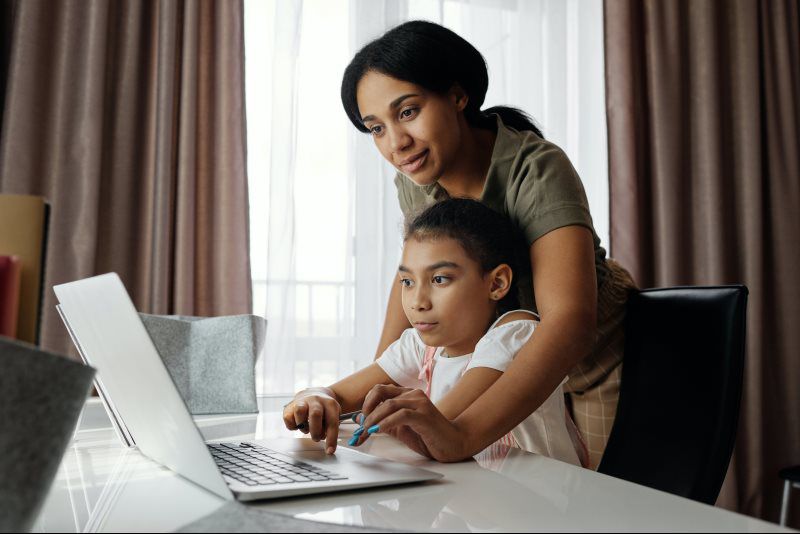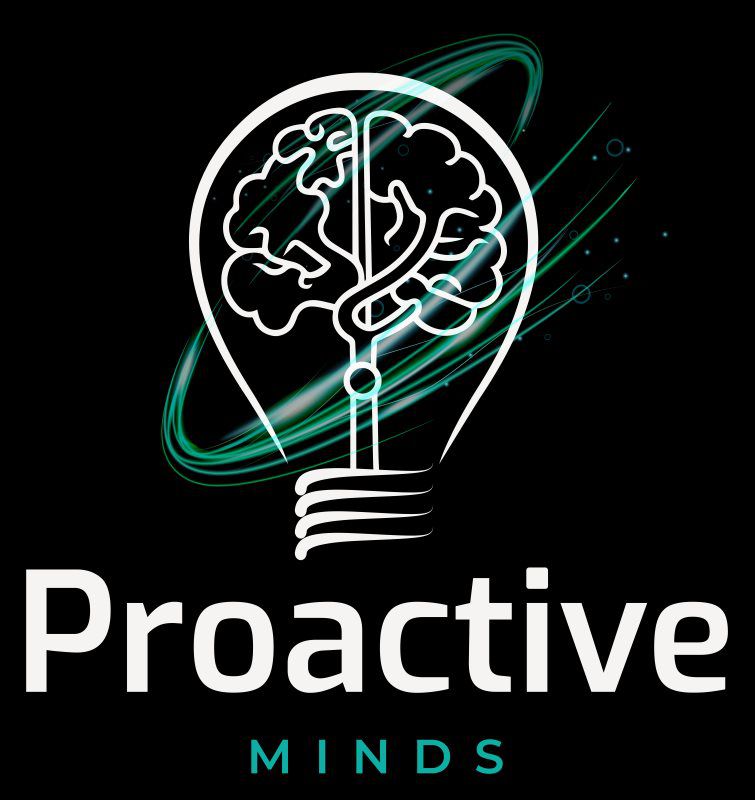Child & Adolescent Therapy
Child and adolescent therapy is specialized mental health support for young individuals. Focused on creating a safe environment, the goal is to address emotional and behavioral challenges, promoting healthy development during crucial formative years.
What Does a Child & Teen Psychiatrist Do?
A child/teen psychiatrist is a doctor who specializes in diagnosing and treating behavioral disorders in children up until the age of 18. This kind of psychiatrist uses their knowledge, training, and experience to offer treatment solutions, including medication, that will best help a child or adolescent with their unique challenges. Child psychiatrists take many factors into consideration— including biological and psychological influences—to help kids and their families cope with interpersonal relationships, stress, and crises.
Child Psychiatrists vs Child Psychologists
The Difference Between a Child Psychiatrist and a Child Psychologist Child psychiatrists and child psychologists both diagnose and treat mental health disorders in children and adolescents. The primary difference between the two is that psychiatrists tend to focus on medication management, while psychologists tend to focus more on talk therapy.
When to See a Child Psychiatrist vs a Child Psychologist
A psychologist can help a child to work through difficult situations, learn coping skills to manage strong feelings like anxiety and depression, and help families to communicate and get along better. What a psychologist cannot do is prescribe medication. Most child psychiatrists see children to establish and manage the medication portion of their treatment. Usually, a child will need to see a psychologist for weekly therapy in addition to their visits with a psychiatrist.
How to Find a Child Psychiatrist
The number of child and adolescent psychiatrists available in the US is relatively low, so it can sometimes be a challenge to find one located in your area. One in five children in the US live in a county without a child psychiatrist. That’s why online therapy has become so important to children and parents in need of these services. Online therapy makes child psychiatrists more available and accessible, and also gives parents the opportunity to find the right child psychiatrist for their particular needs and challenges.
Signs a Child Could Benefit from Seeing a Psychiatrist
Several signs may indicate that a child could benefit from seeing a psychiatrist. It's essential to note that children may express their emotional and mental well-being differently, and these signs can vary.
Persistent Behavioral Changes
Sudden and persistent changes in behavior, such as increased aggression, withdrawal, or mood swings, could be indicative of underlying mental health concerns.
Academic Struggles
A decline in academic performance, difficulty concentrating, or reluctance to engage in school-related activities may suggest emotional challenges.
Difficulty Coping with Transitions
Difficulty adjusting to changes, transitions, or life events, such as parental separation or moving to a new school.
Intense Anxiety or Fears
Excessive fears, phobias, or heightened anxiety that interferes with daily activities and normal functioning may warrant professional attention.
Sleep Disturbances
Persistent sleep difficulties, such as frequent nightmares, insomnia, or changes in sleep patterns, could be signs of emotional struggles.
Excessive Perfectionism
Perfectionistic tendencies that create distress and interfere with the child's ability to enjoy activities or interact with others.
Loss of Interest
A sudden loss of interest in activities that once brought joy or enthusiasm may suggest emotional challenges.
Social Withdrawal
If a child consistently withdraws from social interactions, experiences difficulties making friends, or shows a sudden change in peer relationships, it may indicate emotional distress.
Regression in Developmental Milestones
Reverting to earlier developmental stages, such as bedwetting or thumb-sucking, may indicate emotional stress.
Expressing Suicidal Thoughts
Verbalizing thoughts of self-harm or suicide requires immediate attention and intervention.
Why Should a Child See a Psychiatrist?
Seeing a child psychiatrist at Proactive Minds can prove beneficial for a child as our mental health care professional can conduct thorough assessments, collaborate with other healthcare providers, and develop comprehensive treatment plans that may include psychotherapy, behavioral interventions, and, if necessary, medication. The goal is to support the child's mental health, enhance coping skills, and improve overall well-being.
Specialized Expertise
Child psychiatrists have specialized training in understanding the unique mental health needs of children and adolescents. Their expertise allows for a more accurate diagnosis and tailored treatment.
Early Intervention
Early identification and intervention are crucial for addressing emerging mental health concerns in children. Child psychiatrists can provide timely support to prevent issues from escalating.
Identify Underlying Causes
Our Proactive Minds psychiatrists can help explore the underlying causes and develop appropriate interventions that will cater to the uniqueness of the child and provide the support they need.
Traumatic Experiences
Children who have experienced trauma or significant life events may benefit from the expertise of a child psychiatrist to navigate the emotional impact and develop coping strategies.
What Can Child and Adolescent Psychiatry Treat?
Child and adolescent psychiatry addresses a wide range of mental health and behavioral issues that impact young individuals. Child and adolescent psychiatrists are trained to diagnose, treat, and manage various conditions. Child and adolescent psychiatrists use a combination of psychotherapy, behavioral interventions, family therapy, and, when appropriate, medication to address these conditions. Additionally, they work collaboratively with other healthcare providers, educators, and parents to create a comprehensive and individualized treatment plan tailored to the unique needs of each young person. Early intervention and ongoing support are crucial for promoting the mental well-being and healthy development of children and adolescents.
Situations & Conditions:
Depression
Early-onset Psychosis
The Death of a Loved One
Anxiety Disorders
Eating Disorders
Moving/Starting at a New School
Bullying
Parental Separation or Divorce
Self-Harming Schizophrenia
Bipolar Disorder
Oppositional Defiant Disorder (ODD)
Obsessive-Compulsive Disorder (OCD)
Attention-Deficit/Hyperactivity Disorder (ADHD)
Post-traumatic Stress Disorder (PTSD)
Trauma or Stress-Related Disorders
Tourette Syndrome
Autism Spectrum Disorders
Drug and Alcohol Issues
Medication Management
A crucial element of a child’s care is proper medication management. Your child’s psychiatrist can recommend the right medicine, dosage, and schedule for the most effective treatment.
How To Prepare For A Child Psychiatry Virtual Appointment
Preparing for a child psychiatry virtual appointment is essential to ensure a smooth and productive experience. Here are some suggestions to help you prepare:
Test Technology in Advance
Ensure that the device (computer, tablet, or smartphone) you'll be using for the virtual appointment is in good working condition. Test the video and audio features to avoid technical issues during the session.
Choose a Quiet and Private Space
Select a quiet and private location for the virtual appointment where you and your child can speak openly without distractions. This helps maintain confidentiality and allows for a focused conversation.
Gather Necessary Information
Collect relevant information about your child's medical history, including previous diagnoses, medications, and any relevant medical or developmental information. Have insurance information available if needed.
Write Down Concerns and Questions
Jot down specific concerns or questions you have about your child's behavior, emotions, or any changes you've observed. This ensures that you cover all important topics during the appointment.
Involve Your Child in the Preparation
Depending on your child's age and comfort level, involve them in the preparation process. Explain the purpose of the appointment, and encourage them to share their feelings or concerns during the session.
Have Relevant Materials Ready
If there are any relevant materials, such as school reports, previous assessments, or behavioral logs, have them ready to share with the child psychiatrist. This information can provide valuable insights.
Create a Comfortable Environment
Set up a comfortable and well-lit environment for the virtual appointment. Ensure that your child feels at ease and has any necessary comfort items nearby.
Discuss Expectations with Your Child
Before the appointment, discuss what to expect during the virtual session with your child. Explain that it is a safe space to share their thoughts and feelings, and reassure them about the confidentiality of the appointment.
Be Open and Honest
Be open and honest about your observations and concerns. Providing detailed and accurate information helps the child psychiatrist in making a thorough assessment.
Follow Up on Recommendations
If the child psychiatrist provides recommendations or assigns tasks, follow up on them promptly. Consistent follow-up contributes to the effectiveness of the treatment plan.
What Happens During Online Child and Adolescent Psychiatry?
Online child and adolescent psychiatry sessions aim to create a supportive and therapeutic environment, fostering open communication and collaboration between the child, parents, and the psychiatrist. The flexibility of online sessions allows for accessibility and convenience while addressing the unique needs of young individuals. Here's an overview of what typically happens during online child and adolescent psychiatry:
Initial Assessment
The session often begins with an initial assessment where the child psychiatrist gathers information about the child's medical history, developmental milestones, family background, and any previous mental health interventions.
Discussion of Concerns
Parents or caregivers discuss their concerns about the child's behavior, emotions, or any specific challenges they have observed. The child may also share their feelings and experiences, depending on their comfort level.
Observation and Interaction
The child psychiatrist observes the child's behavior, interaction patterns, and emotional expressions during the session. This can provide valuable insights into the child's mental and emotional well-being.
Psychoeducation
The child psychiatrist may provide psychoeducation, explaining aspects of mental health, specific diagnoses, and potential treatment approaches. This helps parents and the child understand the nature of the concerns.
Collaborative Goal Setting
Collaboratively, the child psychiatrist, parents, and, if appropriate, the child set goals for the treatment. These goals may include addressing specific behaviors, improving emotional regulation, or enhancing overall well-being.
Development of Treatment Plan
Based on the assessment and identified goals, the child psychiatrist develops a comprehensive treatment plan. This plan may include psychotherapy, behavioral interventions, educational support, and, if necessary, medication.
Therapeutic Interventions
Psychotherapeutic interventions are often a central part of child and adolescent psychiatry. The child psychiatrist may use various therapeutic approaches, such as cognitive-behavioral therapy (CBT), play therapy, or family therapy, depending on the individual needs of the child.
Medication Management (if applicable)
If medication is deemed necessary, the child psychiatrist may discuss medication options, potential benefits, and any associated risks. Medication management is closely monitored, and adjustments are made as needed.
Skill Building and Coping Strategies
The child psychiatrist helps the child develop coping strategies, emotional regulation skills, and behavioral techniques to manage specific challenges they may be facing.
Family Involvement
In many cases, family involvement is crucial. The child psychiatrist may work with parents or caregivers to implement behavioral strategies, provide support, and enhance the overall family environment.






